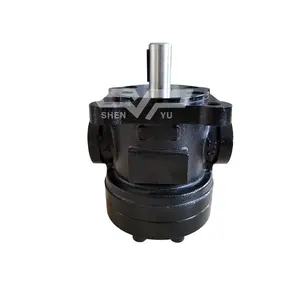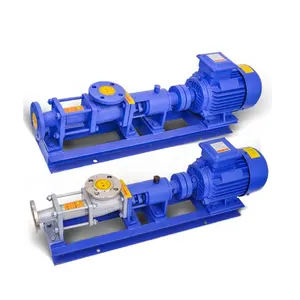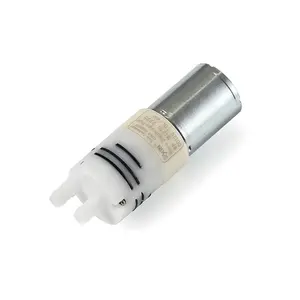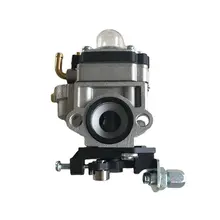What are Pumps
Pumps are mechanical devices designed to move fluids (including gases and liquids) by displacing them through mechanical action. They serve a plethora of purposes across numerous industries, ranging from residential and commercial utilities to heavy-duty industrial operations. For instance, they are essential in water supply systems for family homes, in agricultural irrigation for farms, and in the automotive industry for cooling systems. Pumps also play a pivotal role in the pharmaceutical industry, wastewater treatment, and even in the energy sector for handling biofuels.
The principle of operation for pumps generally involves creating a low-pressure area at the pump inlet which allows atmospheric pressure or another external pressure source to push the fluid into the pump. From there, the pump mechanism, which may involve rotation or reciprocating motion, imparts energy to the fluid, thus moving it through the pump and into the discharge pipe. There are several types of pumps, each using different methods to move fluids; some use centrifugal force while others rely on positive displacement.
The users of pumps span a vast array of sectors, including homeowners needing to move water around their property, farmers requiring irrigation solutions, industrial plant managers handling chemicals or hot water in boilers, and engineers needing precise fluid control in manufacturing processes. The diversity of applications necessitates an equally diverse range of pump types and specifications to precisely meet each unique requirement.
Types of Pumps
The world of pumps is richly varied to accommodate the wide spectrum of applications they serve. Some common types include:
Centrifugal Pump: These pumps use a rotating impeller to impart velocity to the fluid, converting this velocity into flow. They're commonly used for water supply in homes and commercial buildings, as well as in cooling systems.
Submersible Pump: Designed to operate while submerged in the fluid they are pumping, these pumps are typically used for deep well drilling, sewage treatment plants, and as sump pumps for draining unwanted water accumulations.
Diaphragm Pump: This type uses a diaphragm that moves back and forth to create a temporary chamber that draws in and expels fluid. They're often utilized in situations requiring a gentle handling of the fluid, such as in the pharmaceutical industry.
Gear Pump: Employing the meshing of gears to pump fluid by displacement, gear pumps are frequently found in chemical installations and oil industries where high-viscosity fluids need to be moved.
Peristaltic Pump: Mimicking human peristalsis or 'squeezing' action, these are used particularly where contamination must be avoided such as in sterile processes or food production.
How to choose Pumps
Choosing the right pump for your business requires careful consideration of several factors informed by your specific needs. Here's what you should keep in mind:
Application Needs: Determine what you'll be using the pump for—is it for handling clean water in agricultural irrigation or transporting abrasive slurry in mining operations? Each application requires different pump characteristics.
Pressure Requirements: Consider whether your operations need high-pressure delivery systems or if lower pressure will suffice. High-pressure pumps are essential when moving fluids over long distances or when high force is needed for operations like cleaning.
Material Compatibility: The fluid being pumped can dictate the construction material of the pump. For instance, stainless steel pumps are often preferred for sanitary applications or corrosive liquids while cast iron might be used for less corrosive environments.
Power Source: Is your location conducive to using solar power? Or do you require an electrically powered system? Understanding your power source options can lead to more efficient and cost-effective operations.
Customization Needs: Your business might need custom features like ODM support or specific software reengineering. Suppliers on Alibaba.com can offer these custom services to ensure that your pump fits perfectly within your operational setup.
By taking into account these factors and leveraging Alibaba.com's vast selection of suppliers and products, businesses can effectively select a pump that meets their exact requirements.
Best Pumps on Alibaba.com
Alibaba.com is an invaluable marketplace that connects buyers with a global network of suppliers offering an extensive variety of pumps suited for all kinds of industrial needs. Whether your business specializes in agriculture, manufacturing, mining, or residential services, you'll find a wide selection of pumps designed with different principles like centrifugal force or rotary mechanisms. These products cater not just to general requirements but also provide options for specialized applications such as high-efficiency systems with low noise features or waterproof designs ideal for harsh environments.
The platform's user-friendly interface allows businesses to easily search and filter through options based on application needs, pressure requirements, material construction, power source compatibility and more. Additionally, with Alibaba.com's emphasis on quality assurance through services like Trade Assurance coupled with supplier verification processes, businesses can engage with confidence knowing that their transactions are protected and their products are reliable.
Alibaba.com prides itself on making global commerce more accessible by offering tailored solutions that simplify international trade. The platform's dedication to helping small and medium-sized businesses thrive is evident through its comprehensive range of products and services designed to meet every stage of business growth. With Alibaba.com's established presence since 1999 and its continuous innovation in e-commerce solutions, businesses worldwide have an exceptional resource at their disposal when sourcing wholesale pumps tailored to their specific needs.
Common FAQs for Pumps
What Is the Main Function of a Pump?
A pump's main function is to move fluids by mechanical action. Pumps can transport water, chemicals, oil, and other liquids or gases from one location to another, often against gravity or over long distances.
How Do I Determine the Right Size Pump for My Application?
The right size pump for your application depends on the volume of fluid you need to move and the specific requirements of your system such as flow rate, pressure head, and the nature of the fluid.
What Are the Different Power Sources for Pumps?
Pumps can be powered by various sources including electricity, solar energy, hydraulic systems, or internal combustion engines depending on the application and availability of resources.
When Should I Choose a Centrifugal Pump Over a Positive Displacement Pump?
You should choose a centrifugal pump when you need to pump large volumes of low-viscosity fluids at relatively low pressures. Positive displacement pumps are preferred for high-pressure applications or when pumping viscous fluids.
Can Pumps Handle Solids in the Fluid?
Certain pumps like diaphragm pumps or certain types of rotary pumps are designed to handle fluids that contain solids. However, the size and concentration of solids that can be accommodated vary by pump type and design.
What Is a Multistage Pump?
A multistage pump is a type of pump that has multiple impellers to generate higher pressures. It is commonly used in applications requiring high head such as water distribution in tall buildings or long-distance water supply systems.
What Materials Are Commonly Used to Manufacture Pumps?
Common materials used in pump manufacturing include stainless steel, which is resistant to corrosion and ideal for sanitary applications, and cast iron, which is often used for less corrosive and lower-cost requirements.
How Important Is Pump Efficiency?
Pump efficiency is critical as it directly affects operating costs and energy consumption. High-efficiency pumps can significantly reduce energy expenses over time, making them an important consideration for businesses looking to optimize their operations.
What Maintenance Is Required for Pumps?
Pump maintenance typically includes regular inspections, lubrication of moving parts, checking seals and valves for wear or leaks, and replacing worn components to ensure optimal performance and prevent failures.
Can Pumps Be Customized for Specific Applications?
Yes, pumps can be customized for specific applications. Many suppliers offer options such as ODM support to tailor pumps to unique operational requirements or environments.
Are There Pumps Available for High-Temperature Applications?
Yes, there are pumps designed specifically for high-temperature applications. Material selection and design considerations are essential for these types of pumps to ensure they can handle the thermal stress.
How Do I Choose Between a Mechanical Seal and Seal-Less Pump?
The choice between a mechanical seal and seal-less pump depends on factors such as fluid properties, maintenance capabilities, and the risk tolerance for leaks. Seal-less pumps are often used when leakage is unacceptable.
What Is a Solar-Powered Pump and Its Benefits?
A solar-powered pump operates using energy from solar panels. Its benefits include lower operating costs, reduced carbon footprint, and the ability to operate in remote areas without access to electrical power grids.
How Does Pressure Affect My Pump Selection?
Pressure requirements determine the type of pump you’ll need; high-pressure applications may require multistage or high-head pumps, while low-pressure tasks might be well-served by single-stage or lower-head pumps.
What Should I Consider When Using Pumps in Corrosive Environments?
In corrosive environments, it’s important to choose pumps made from materials that can withstand the chemical composition of the fluid being pumped, such as certain grades of stainless steel or specialized alloys.
How Can I Ensure My Pump Is Energy Efficient?
To ensure your pump is energy efficient, consider factors such as proper sizing for your application and selecting models with high-efficiency ratings that match your system's flow rate and pressure requirements.












































 浙公网安备 33010002000092号
浙公网安备 33010002000092号 浙B2-20120091-4
浙B2-20120091-4